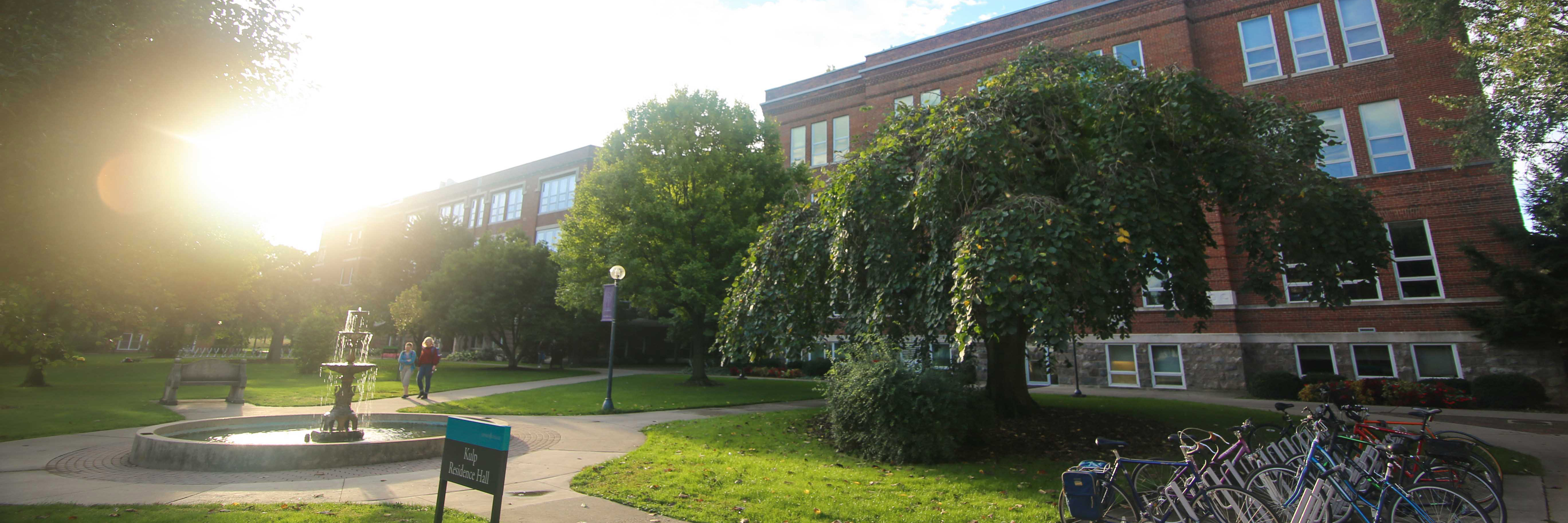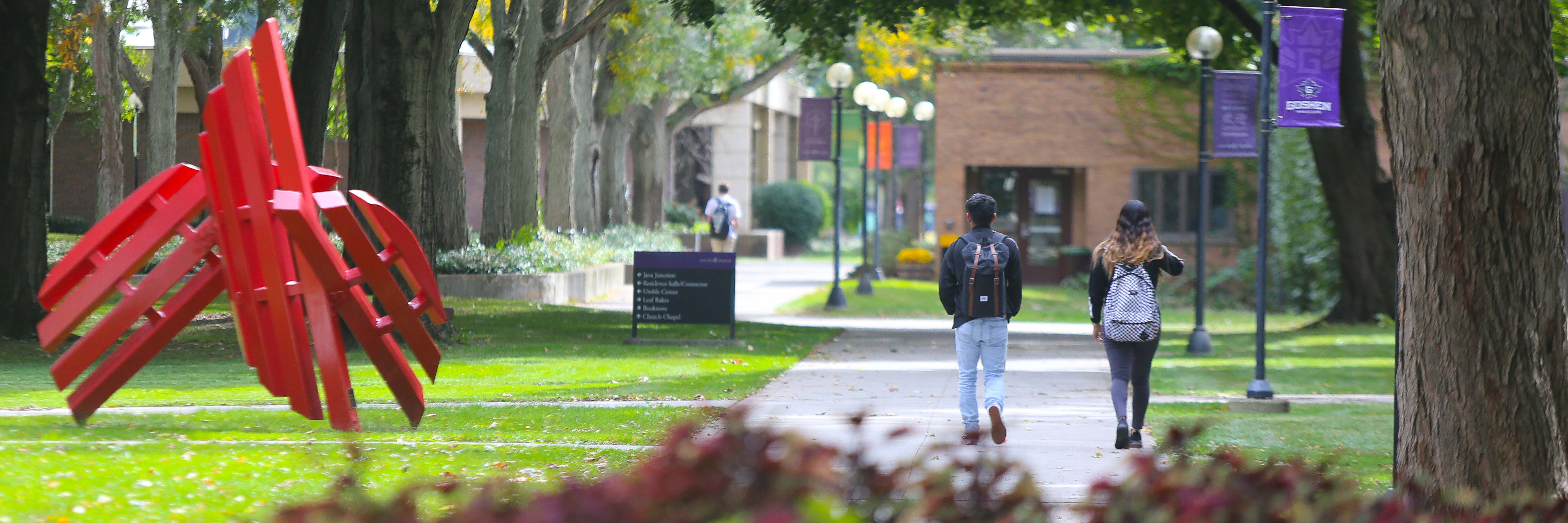Get the most from your estate planning

Do you have a current will? If so, you may be among the minority. A 2019 study by Caring.com reports that 57% of all U.S. adults do not have a will or living trust in place, despite 76% of respondents stating that having a will is important. Among those who don’t have estate documents, the main reasons are “I just haven’t gotten around to it” (50%) and “I don’t have enough assets to leave to anyone” (22%). The time and cost of completing a will may be a slight disincentive, but it certainly shouldn’t impede it. When one thinks of the amount of time and money typically spent planning a wedding or a significant birthday or anniversary, surely planning one’s estate shouldn’t be any less important, nor is it more time consuming or costly.
We celebrate the continuing effort of Bill Gates and Warren Buffett to engage the world’s wealthiest individuals to confirm they will give away significant portions of their estates. According to www.givingpledge.org, more than 200 of the world’s wealthiest individuals or families have committed to give away at least 50% of their fortune. The net result over time should be quite impactful in alleviating poverty and suffering, preventing and treating disease, and advancing education. The campaign, however, underscores an important, though more subtle, message about the value of charitable estate planning.
Good stewardship requires careful planning. As individual and family net worth and circumstances change, the greater the necessity for careful estate and financial planning.
Much of what we, as individuals, are able to do for our families and charitable institutions during our lifetime is the result of good stewardship of what we earn and accumulate. It is equally important to be good stewards of our resources when we no longer need them. A comprehensive estate plan is necessary to make certain that our resources will be distributed to family members and to charitable organizations that we believed in and supported during our lifetime.

Ensuring the Future
The most fundamental way individuals help to ensure the future of Goshen College is to make a provision in a will directing a percentage or specific amount of the estate to the College. Proper planning ensures that family and charitable priorities are realized. This issue of the Estate Planning Newsletter will describe the reasons for having a valid will – and keeping it current – and how to make an effective bequest to Goshen College.
Estate Planning Begins With a Will
The most basic component of any estate plan is having a valid will. Preparing a will should be done carefully and with the help of an attorney who has the experience and expertise to help you carry out your wishes. It is your attorney’s job to keep abreast of current estate tax law and guide you through the process of constructing your will so that you accomplish your objectives and avoid needless complications for your loved ones. If you do not prepare a valid will, the laws of the state in which you reside will prescribe how your estate is distributed. Unless you are in agreement with the distribution used by the state, it is imperative that you prepare your own valid will to ensure that your wishes are carried out.
Once your will is made, it should be considered a living document. Many factors can have a bearing on your will and may necessitate adjustments. It is wise, in fact, to review your will at least once a year.
Federal and state tax laws affecting wills and estates have changed frequently in the past and will likely change in the future. The state in which you live may have additional legislation which affects your will and your estate plans. Also, the value and form of the assets which you plan to distribute in your estate may have changed since you prepared your will. You may, for example, have engaged in a business enterprise which has substantially increased your estate. You may have had a significant increase or decrease in the value of your real estate holdings. You may have accumulated substantial assets in your IRA, Roth IRA, 401(k), 403(b), or other retirement plan which has significant tax implications at your death. You may have received a large inheritance. Conversely, you may have made some lifetime gifts to relatives or to a charity that you had earlier planned to make through your will. In addition, circumstances related to your heirs may have changed, resulting in your desire to include them for a greater or lesser portion of your estate. These and other factors make it extremely important that you and your attorney monitor your changing situation to make certain that your will is up-to-date.
The First Step in Making a Will – Determine Your Objectives
Before you talk with your attorney concerning your will, it is important to think seriously about what you want to accomplish through the distribution of your estate. If you are married, you and your spouse will each need a separate will, and together, the two of you may want to discuss your estate planning objectives. For some people, a primary objective is to pass assets to the surviving spouse and then to children and grandchildren. Other objectives may include bequests to organizations whose missions and purposes are extensions of your lifelong beliefs and values. Therefore, it is also advisable to discuss your charitable intentions with the chief executive or development staff member(s) at those charitable institutions which you wish to include in your will. These representatives can often provide insights into the best strategies for accomplishing both your objectives of passing wealth to family members and making an estate gift to one or more non-profit institutions. We at Goshen College are regularly consulted in such matters.
In addition to clarifying the objectives of your estate plan, it is helpful to make an assessment or inventory of your estate. Your attorney can be more helpful to you and the process of making your estate plans will go much more quickly if you have done this in advance of your first appointment. The process will also give you a much better understanding of your own assets. It is important to remember that life insurance and retirement accounts (pension, IRA, 401k, 403b, etc.) may not be distributed by your will. Instead, these particular types of accounts must name a specific beneficiary or beneficiaries. Therefore, these items also need to be kept current.

The Living Trust
In addition to creating a will, many individuals also create a revocable “living” trust, which is an instrument that contains provisions of the individual’s estate plan and specifies how the individual’s assets will be distributed at death. A living trust (sometimes called an “inter vivos trust” or a “revocable trust”) is a written legal document through which your assets are placed into a trust for your benefit during your lifetime and then transferred to designated beneficiaries at your death by your chosen representative, called a “successor trustee.” The individual creating the trust (the trust “grantor”) often serves as trustee of the trust during his or her lifetime.
There can be advantages to setting up a living trust, including the avoidance of probate court proceedings at the grantor’s death for assets that the grantor has transferred to the trust during his or her lifetime and protecting the grantor’s privacy. This process also avoids proceedings to appoint a guardian to take over the grantor’s assets during the grantor’s life if the grantor becomes incapacitated. At first, drafting a living trust will likely cost more than drafting a will as it is more complex.
Making a Charitable Bequest By Will
A number of individuals have directed resources to Goshen College over the years by making a specific bequest through their wills. Doing so can be attractive for donors who wish to extend their values and interests into perpetuity. Funds have been directed to establish endowments which memorialize the donors themselves, their parents, or other family members. The income from these endowments has been used for a variety of purposes, including scholarships, program support, lectureships, student research support, etc. At times, bequests we have received have been in a form other than cash, such as real estate, tangible personal property, stocks and bonds. In most cases these have been liquidated and the funds placed in our portfolio to generate income for the purposes the donor intended.
There are several ways to include a bequest to Goshen College in your will. While you will need the assistance of your attorney in determining which way best fits your particular circumstances, the following are some methods used in making a gift by will:
Outright Gifts – A gift made by bequest can be an outright gift of a percentage of your estate, a specific sum of money, a specific piece of personal property, or it can be a share of such property. For example, a donor could, following the Gates/Buffett example, designate by will as much as 50% of their estate or a more modest percentage. Sometimes 2% or 3% can make a real difference to the institution without significantly impacting your heirs. Alternatively, one could designate a specific sum, such as $50,000 or all of your shares of XYZ Corporation stock to Goshen College. Another option would be for the donor to give one-half of his or her shares in ABC Corporation stock to the College.
Residual Gift – What is left in your estate after all outright, specific, and other similar gifts have been made is called the residuary estate. You may direct in your will that this residuary estate be transferred to specific persons, or you can have your residuary estate (or a portion thereof) pass to a charitable institution such as Goshen College. For example, a donor’s will could provide that one-fifth of his or her residuary estate will be transferred to Goshen College, Inc., and the other four-fifths of the residuary estate will either be transferred outright to family members or held in trust for their benefit.
Gift of Real Estate – A gift of real estate may be made entirely to one person, such as one’s spouse, or to an institution. Or the real estate might be given to one’s spouse for use during the spouse’s lifetime, with the property then passing to another person or Goshen College. For example, a donor may want to give the family home to the surviving spouse for the spouse’s specific lifetime use and then have the will provide that the home will transfer to the College.
Contingent Beneficiary – A donor may wish to consider naming Goshen College as the contingent beneficiary of his or her will. This means that our institution would benefit only if the beneficiaries named in the will are not living when the donor dies. In the event all one’s beneficiaries are deceased when one’s will takes effect and there are no other close relatives, it is possible that the estate could pass to distant, and possibly unknown, relatives by default. Often this involves expensive litigation. If no relatives can be found, the entire estate could pass to the state. By naming Goshen College as contingent beneficiary, one prevents this from happening.
Gifts in Trust – You may establish one or more trusts in your will that benefit family members or other persons as well as Goshen College. One way is to designate that the earnings from the trust property be paid to your spouse for his or her lifetime, with the trust property then transferring to the College. There are many trust variations, and it is essential to consult an experienced attorney in drawing up such a trust, so as to comply with complex Federal regulations and qualify for the allowable estate and income tax charitable deductions.
Codicil – If a gift to Goshen College is not now included in your will and you wish to make such a gift, you can do so through execution of a codicil (amendment) to your will. Your attorney should be consulted to draw up the codicil. This is often relatively simple and inexpensive.
IRA or Other Retirement Plan Beneficiary – For any and all types of tax-qualified retirement plans, a beneficiary needs to be named when the account is established. For many of these plans, like the traditional IRA, if the funds are left to children or other heirs, they will need to pay income tax on the distributions. Thus these accounts make ideal gifts to charity through one’s estate as the income taxes will then not be due. Some choose to keep their wills and trust very simple and do all of the charitable estate giving through their qualified retirement plans.

Sample Wording for Charitable Bequests
As stated previously, there are a number of ways to include a bequest to Goshen College in your will. One of the most common errors with charitable bequests is the use of an incorrect name for a charitable institution. Using an incorrect name can lead to expensive litigation, or worse, the failure of giving the specific gift to the charity (and the failure to satisfy the donor’s intent). Therefore, it is important that the correct legal name and address is verified with the intended charitable institution prior to documenting it in your will.
The following are samples of possible wording for a charitable bequest which you may review with your attorney:
- Unrestricted Bequest: I give to Goshen College, Inc., 1700 S. Main St., Goshen, IN 46526, ___ % of my adjusted gross estate, or, [the sum of $_______] for its general purposes.
- Restricted Bequest: I give to Goshen College, Inc., 1700 S. Main St., Goshen, IN 46526, __% of my adjusted gross estate, or, [the sum of $ ] to be used for . If the Goshen College’s Board of Directors at any time determines, however, that the College’s purposes would be better served by using a portion or all of such sum for Goshen College’s general purposes, such portion or all may then be used for such general purposes.

The “Living Will”
The purpose of estate planning is to make decisions not only about our tangible resources, but also about our health and well-being. How we wish to be cared for when we are incapacitated and whether we wish to be kept alive by mechanical means are issues that should be determined in advance. Leaving these matters to a distraught spouse and/or other family members during a health crisis may lead to hasty or ill-advised decision-making.
In many states it is possible to execute a “living will” and/or a health care power of attorney. A living will is an instrument that states how you wish your care and treatment to be handled. A health care power of attorney is an instrument by which you name a person to make decisions that affect your health care if you are unable to do so because you are incapacitated. This assures that you maintain control of your life and relieves your family of making life choices for you. Your attorney can advise you of your options in your state of residence.
Conclusion
Having a current and valid will should be a high priority for each of us. Through it, we can make certain that our estate is distributed according to our wishes, not according to a state-imposed formula. In this way, we are able to continue to support those persons and causes which have been so important to us during our lives.
As you work with your attorney in drafting or revising your will, we hope you will consider making a bequest to Goshen College, Inc. to further our work. If you have questions, or would like additional information about our mission and programs, please contact me or one of the others in the College’s Advancement office.

Roger A. Nafziger
Director of Gift Planning
rogeran@goshen.edu
Ph: (574) 535-7797




